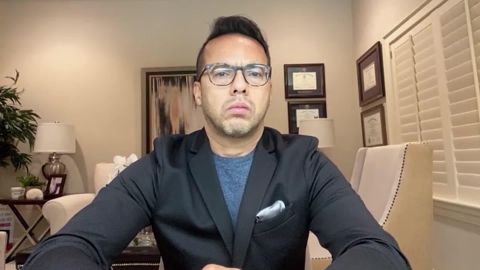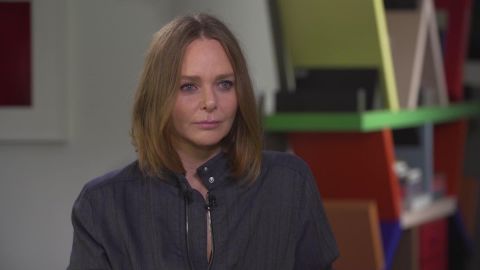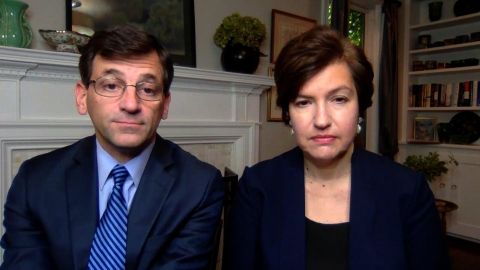Read Transcript EXPAND
CHRISTIANE AMANPOUR: What have you been doing through the lockdown? How has it affected your work?
STELLA MCCARTNEY, FASHION DESIGNER: Well, I mean, I think like everyone, I found myself asking sort of bigger questions really of what I do and why I do it. Why do you come to Stella McCartney if you can buy anything from any brand in the world and why would you come and work here? And I found what I was really proud of is that I believe so deeply in what we do here and how we have a completely new approach to the business of fashion. And I think coming back to fashion as a consumer, if you can come back with a more conscious level of consumption, lots of Cs, and that’s what kind of hit me, really. You know, we focused a lot on the collection on how we could reduce what we produced, how we could do more with less. And just, you know, really challenge ourselves to be the best sustainable fashion house on earth.
AMANPOUR: So, sustainability is your thing. And this is where you have pioneered, I think, the fashion industry. Just want to ask you just out of interest, have you noticed people buying different things during lockdown? I mean, are people buying more loungewear other than more than going out wear?
MCCARTNEY: Well, I mean, the ball gowns aren’t exactly rushing out of the stores. Yes, there’s been a big difference in the way people buy. You know, one of the biggest things that we do that people maybe don’t even understand or we assume people understand is wear a vegan brand. And, you know, that probably has the most positive footprint for us as a house, that we’re sort of buying into animal agriculture. And what is a vegan? You know, I don’t think a lot of people know. So, I think that sort of —
AMANPOUR: So, your definition of a vegan as it applies to fashion?
MCCARTNEY: Yes. Is no animal products. All of our accessories, for example, are using vegan glues as opposed to animal glues, which are boiled down bones, which is not that sexy. So — and obviously, faux leathers, faux furs and just sort of talking about what we do and trying to also keep it sexy and fun and like not telling people off and just giving it an alternative. You know, creating a solution that doesn’t in any way sacrifice what you want from fashion.
AMANPOUR: Do you find that you’re not pushing on such an uphill boulder?
MCCARTNEY: I think so. I think for a few years now I’ve noticed that the fashion industry, which has normally been very fickle and weirdly takes longer sometimes to see the fashion in food, the fashion in lifestyle, people’s choices have slowly been coming to this sort of way of thinking. And, you know, I think it’s because the next generation of people are afraid for their future and they’re having to buy things and live their lives in a different way and be more conscious. So, it’s finally come to the door of fashion. And, yes, I think I’m less of a sort of eco-weirdo in the room now. I think I can have these conversations with my fellow designers and people in the industry, and it’s something that is welcomed.
About This Episode EXPAND
Susan Glasser and Peter Baker discuss their new book on former Secretary of State James Baker. Stella McCartney reflects on the future of fashion. Reverend Samuel Rodriguez discusses Roe v. Wade, the evangelical vote, and more.
LEARN MORE


